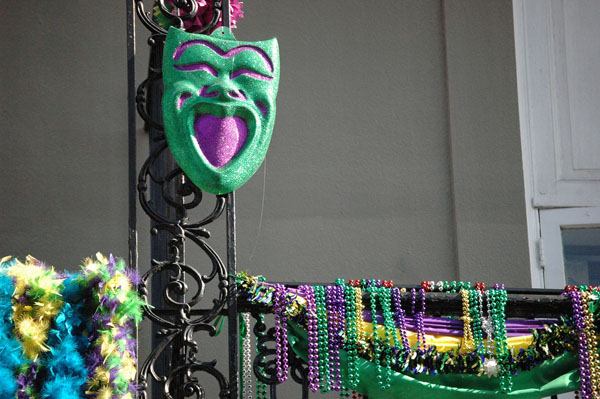
February seems like a good month to take a look at sin, doesn’t it? Ash Wednesday is next week, which means Mardi Gras is next week. We’re looking at Carnival, at Lent, at a juncture in the (Western, Judeo-Christian) calendar when we compare and contrast sin and contrition, decadence and abstinence. After all, as Rasputin said, “Before we can repent, we have to sin.”
That’s the fun part, isn’t it? It’s great to wrap ourselves up in excess once in a while, to enjoy the pleasures of the senses. We can enjoy the rich foods of the season, indulge in a few extra drinks, stay up too late with music and dancing and the partners of our choosing.
There’s no real sin in that, of course. There’s a Jesuit priest I follow on Twitter and he made a post yesterday that I felt was important. He pointed out that “Love is the first law.” There’s nothing about kicking up our heels and having a good time that contradicts that law.
It’s hard to escape the idea of sin, though. Romance, whether het or queer, involves characters interacting with each other. Those characters are products of some kind of society, and that society is going to have strong views about how those characters interact. Oftentimes those views form some of the obstacles the characters have to overcome.
Which brings me to the idea of sin in queer romance. Not all sin is sexual, obviously. (I’m thinking back to the last time I tried to go to confession, when the priest actually fell asleep in the booth.) In the context of romance – and a lot of the conversations we have in the West around the idea of sin – most sin relates to sex and attraction, and it’s something we can hardly avoid.
In science fiction (and SF romance), we can build a society that’s evolved past any notion of trying to control an individual’s attraction. In fantasy romance, we can build cultures that never cared about the gender identity of the partners involved in a relationship and always considered it a private matter. When we’re writing in a contemporary setting, though, we have to consider how our characters interact with the world around them.
That means we have to think about how our readers, and how we as readers, interact with the world around us. Will we believe that, say, a character brought up in a strict South Boston Irish Catholic family who shows up to his baby niece’s baptism with his new husband on his arm is going to face no consequences at all?
Now, maybe this book isn’t about homophobia, or about coming out, or about a heavy topic like the judgment of a socially conservative traditional neighborhood being confronted with change. Maybe it’s a murder mystery. The author doesn’t have to focus on the neighbors’ responses. He doesn’t have to dedicate pages upon pages to nasty comments from people our Dashing Hero hasn’t spoken to in ten years anyway. Maybe Our Hero’s parents are cool with it. Maybe the priest is too.
The character will still have thoughts about his relationship to the people around him, and vice versa. If they don’t, if that’s not addressed, it takes a bit away from my ability to believe the story. For me, as a reader, it’s just harder to immerse myself in the tale.
Sin doesn’t have to be described as “sin” in the text, and sometimes the sin isn’t simply same-sex attraction. Promiscuity can be seen as sin. Sex workers are often treated as inherently and permanently sinful, regardless of their reasons for taking up the work and whether or not they’re still involved with the trade. Drug use is viewed as sinful by many, again without regard for why the addict in question started using.
Among the Living, the first in the popular PsyCop series by Jordan Castillo Price, features just such a character. The main character is closeted. He also uses a drug, which he must keep secret. He has very important reasons for using the drug, at least as far as I’m concerned, but he feels compelled to hide his use of it. He fears judgment, both for his sexual preference and for his drug use.
Are these the main focus of Among the Living? No. Do they make for better conflict, and do they make the main character more real? Absolutely. Does his reaction to these issues bring the PsyCop world to life in a more vivid way? Definitely.
Again, sin is a social concept. It’s an important concept to those who are religious, and I’m certainly not trying to denigrate their beliefs. As it relates to fiction, sin is part of how our characters interact with the world around them. It can be part of how they view themselves, too.
As far as real life goes, ‘tis the season I guess. Let the good times roll.

